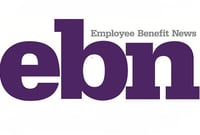Consolidation Corner
-
Blog
- 401k Cash Outs
- 401k Consolidation
- 401k Plan Termination
- America's Mobile Workforce
- Assisted Roll-in
- Auto Enrollment
- Auto Portability
- Auto Portability Simulation
- Automatic Roll-In
- Automatic Rollover
- Automatic Rollovers
- Boston Research Technologies
- CARES act
- Common Mistakes
- DIY Roll-In
- DOL Advisory Opinion
- EBRI
- Employee Benefit News
- ERISA Advisory Council
- Financial Services Roundtable
- Financial Wellness
- How-To
- In-Plan Consolidation
- Leakage
- Lifetime Plan Participation
- Lost Participants
- Managed Portability
- Mandatory Distributions
- MarketWatch
- Missing Participant IRA
- Missing Participants
- National Retirement Savings Cash Out Clock
- Participant Transition Management
- PLANSPONSOR
- Portability Services Network
- PSCA
- Public Policy
- RCH Services
- Retirement Income
- Retirement Plan Portability
- retirement research
- Retirement Savings Consolidation
- Retirement Savings Portability
- Roll-In
- Safe Harbor IRA
- Saver's Match
- Security
- Small Accounts
- Stale Dated Checks
- Synthetic Tenure
- Uncashed Check Services
- Uncashed Distribution Checks
- Video
- Webcast
- What is a Missing Participant?
Consolidation Corner Blog
Consolidation Corner is the Retirement Clearinghouse (RCH) blog, and features the latest articles and bylines from our executives, addressing important retirement savings portability topics.
The Risky Business of Cashing Out Plan Balances Below $1,000
Taking Stock of the Saver’s Match: The Promise and The Challenges
Safe-Harbor IRAs Don’t Offer a Long-Term Saving Solution for Plan Participants
 During the past several years, much progress has been made to simplify the process of enabling defined contribution plan participants to transfer their savings from one plan to another when they change jobs. These strides have been made thanks to an ongoing partnership between the private and public sectors, and between Democrats and Republicans in Congress.
During the past several years, much progress has been made to simplify the process of enabling defined contribution plan participants to transfer their savings from one plan to another when they change jobs. These strides have been made thanks to an ongoing partnership between the private and public sectors, and between Democrats and Republicans in Congress.
In November 2023, we saw the launch of the Portability Services Network, with our nation’s leading retirement plan record-keepers—Alight Solutions, Empower, Fidelity Investments, Principal, TIAA, and Vanguard—on board as founding members. The Portability Services Network makes the digital auto portability solution a reality for helping Americans keep their retirement savings invested in the system and working for them.
The Truth About Old-School Automatic Rollovers
 Protecting benefits owed to a company’s current and former employees is the cornerstone of an employer’s fiduciary duty under ERISA, which celebrates its 50th anniversary this year.
Protecting benefits owed to a company’s current and former employees is the cornerstone of an employer’s fiduciary duty under ERISA, which celebrates its 50th anniversary this year.
So, it troubles me when I read about strategies for plan optimization that advocate for continued reliance upon “old-school” automatic rollovers. While I am all-in for plan optimization, old-school automatic rollovers put employee benefits at risk by generating massive amounts of cashout leakage, stranding millions of participants’ balances in safe harbor IRAs that charge excessive fees and earn paltry returns, while disproportionately impacting minorities, women, low-income and younger workers.
Robert L. Johnson Gives Keynote Address at 2024 EBRI Spring Policy Forum
 On May 16th, Robert L. (Bob) Johnson, Chairman of The RLJ Companies, Retirement Clearinghouse (RCH) and the Portability Services Network (PSN), delivered the keynote address to the 2024 EBRI Spring Policy Forum, co-hosted by the American Benefits Council.
On May 16th, Robert L. (Bob) Johnson, Chairman of The RLJ Companies, Retirement Clearinghouse (RCH) and the Portability Services Network (PSN), delivered the keynote address to the 2024 EBRI Spring Policy Forum, co-hosted by the American Benefits Council.
In Johnson’s address, entitled “Helping to narrow the nation’s lingering racial wealth gap” – the legendary Black American entrepreneur gave Forum attendees insight into the businessman’s long, purpose-driven journey to create entrepreneurial solutions to social problems. Johnson’s achievements began taking shape in the early 1980’s with his creation of Black Entertainment Television (BET) and have culminated in his current efforts in the retirement sector, where he’s become laser-focused on leveraging public/private sector solutions that narrow the wealth gap for minorities and women.
Harness the Power of Retirement Savings Consolidation
America’s Mobile Workforce Meets Their Saver’s Match
 A new survey of American workers who would be eligible to receive a Saver’s Match federal matching contribution confirms the significant public policy benefits that the program could have in leveling the playing field for lower income savers – particularly for Black and Hispanic workers – while also finding that high levels of worker mobility could pose challenges in administering millions of annual matching contribution payments.
A new survey of American workers who would be eligible to receive a Saver’s Match federal matching contribution confirms the significant public policy benefits that the program could have in leveling the playing field for lower income savers – particularly for Black and Hispanic workers – while also finding that high levels of worker mobility could pose challenges in administering millions of annual matching contribution payments.
Six Steps to a Strong Missing Participant Policy
 Missing participants, defined as individuals who have become disconnected from their retirement savings – often through their own inaction – are a significant challenge that has long plagued defined contribution plans. Unfortunately, the responsibility for locating these persons falls squarely on the shoulders of plan sponsors.
Missing participants, defined as individuals who have become disconnected from their retirement savings – often through their own inaction – are a significant challenge that has long plagued defined contribution plans. Unfortunately, the responsibility for locating these persons falls squarely on the shoulders of plan sponsors.
This Earth Day, We are Reminded to Recycle 401(k) Savings, Instead of Adding to the Landfill of Safe Harbor IRAs
 On April 22, we will celebrate the 54th annual Earth Day, which gives us the opportunity to celebrate our planet’s natural surroundings and contemplate how we can help preserve them. The advent, and ongoing expansion of recycling programs has enabled our society to reduce our waste—and although there is still quite a long way to go, we have evolved significantly from the post-World War II throwaway culture.
On April 22, we will celebrate the 54th annual Earth Day, which gives us the opportunity to celebrate our planet’s natural surroundings and contemplate how we can help preserve them. The advent, and ongoing expansion of recycling programs has enabled our society to reduce our waste—and although there is still quite a long way to go, we have evolved significantly from the post-World War II throwaway culture.
A More-Enlightened Approach to Uncashed Distribution Checks
 No retirement plan sponsor likes the idea of dealing with uncashed distribution checks, nor do they wish to draw unwanted regulatory attention or to become embroiled in costly litigation because of their uncashed check policies.
No retirement plan sponsor likes the idea of dealing with uncashed distribution checks, nor do they wish to draw unwanted regulatory attention or to become embroiled in costly litigation because of their uncashed check policies.
Unfortunately, many plan sponsors place themselves in precisely that spot, becoming unnecessarily over-burdened with unresolved uncashed checks, while inviting unwanted regulatory scrutiny and/or legal challenges by embracing flawed uncashed check policies.
A more-enlightened approach to managing the problem of uncashed checks seeks to minimize their numbers, while simultaneously steering clear of the “red flags” that could land them in hot water.
-
Blog
- 401k Cash Outs
- 401k Consolidation
- 401k Plan Termination
- America's Mobile Workforce
- Assisted Roll-in
- Auto Enrollment
- Auto Portability
- Auto Portability Simulation
- Automatic Roll-In
- Automatic Rollover
- Automatic Rollovers
- Boston Research Technologies
- CARES act
- Common Mistakes
- DIY Roll-In
- DOL Advisory Opinion
- EBRI
- Employee Benefit News
- ERISA Advisory Council
- Financial Services Roundtable
- Financial Wellness
- How-To
- In-Plan Consolidation
- Leakage
- Lifetime Plan Participation
- Lost Participants
- Managed Portability
- Mandatory Distributions
- MarketWatch
- Missing Participant IRA
- Missing Participants
- National Retirement Savings Cash Out Clock
- Participant Transition Management
- PLANSPONSOR
- Portability Services Network
- PSCA
- Public Policy
- RCH Services
- Retirement Income
- Retirement Plan Portability
- retirement research
- Retirement Savings Consolidation
- Retirement Savings Portability
- Roll-In
- Safe Harbor IRA
- Saver's Match
- Security
- Small Accounts
- Stale Dated Checks
- Synthetic Tenure
- Uncashed Check Services
- Uncashed Distribution Checks
- Video
- Webcast
- What is a Missing Participant?



